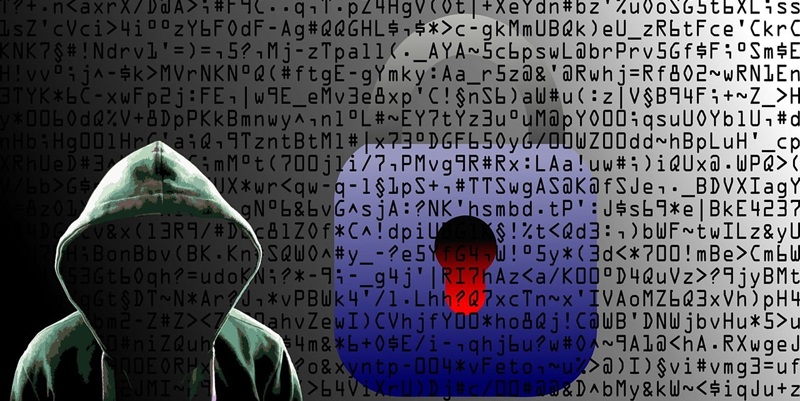Quantum computing is a game-changer in cybersecurity, putting existing encryption at risk. These new powerful computers can break traditional security methods that protect our data. Thus, there’s an urgent need to develop quantum-resistant protective technologies. Focusing on the weaknesses of current systems, industry experts are exploring new cryptographic techniques that can withstand quantum attacks. It is important for businesses to adapt and prepare for these advancements. Understanding quantum-resistant strategies is critical for maintaining security in a future where quantum computing is common. This effort isn’t just about preserving data integrity; it’s about staying ahead in a fast-evolving digital arms race. The consequences of ignoring these developments could be catastrophic, making it imperative for organizations to invest in robust, quantum-proof cybersecurity now.
The Quantum Computing Challenge
Understanding Quantum Computing’s Impact on Security
Quantum computing poses a significant threat to current cryptographic methods due to its ability to process information through quantum mechanics. Qubits, the units that quantum computers use, have the ability of superposition, wherein they can exist in multiple states at once. This capability, along with quantum entanglement, allows these computers to solve complex problems rapidly.
With their advanced computational power, quantum computers can easily crack encryption algorithms like RSA and ECC, which are central to internet security. These algorithms depend on the difficulty of factoring large numbers or calculating discrete logarithms, tasks which Shor’s algorithm on a quantum computer can solve with surprising speed. This breach in security encryption necessitates an urgent revamp of data protection strategies. The advent of quantum supremacy in the realm of cryptography brings with it the urgent need for innovative defenses to secure sensitive information against these emerging threats.
The Race to Post-Quantum Cryptography
The evolution of quantum technology heralds the necessity for encryption that quantum capabilities cannot compromise. The pursuit of quantum-resistant algorithms is therefore accelerating, with substantial research directed towards developing cryptographic systems immune to quantum infringements. This pursuit is a race against time, as the transition to post-quantum cryptography must be completed before quantum computers become sufficiently advanced to break current encryption methods.
International efforts, such as those by the National Institute of Standards and Technology (NIST), are ongoing to standardize quantum-proof cryptographic algorithms. These new algorithms must be both secure against quantum attacks and efficient enough for widespread adoption. It is a daunting task, but proactive measures are essential. Organizations must stay abreast of these developments and begin planning to implement post-quantum cryptographic solutions to safeguard their data against future quantum threats.
Embracing Quantum-Resistant Solutions
Identifying Quantum-Secure Cryptographic Methods
Exploring solutions to quantum cybersecurity threats, there emerge cryptographic methods demonstrating resilience against quantum computer intrusions. Among these, the Advanced Encryption Standard Galois/Counter Mode (AES-GCM) and Transport Layer Security (TLS) 1.3 represent robust protocols essential for future-proofing security systems.
AES-GCM, a symmetric key encryption algorithm, is recognized for its high level of security and efficiency. While no encryption can yet claim to be entirely quantum-proof, AES-GCM’s design is complex enough that, with sufficiently long key lengths, it may resist quantum decryption attempts for the near term. Encompassing both authentication and privacy, its utilization ensures a strong security baseline as the cryptographic realm adapts to quantum advancements.
Implementing a Quantum-Safe Architecture
The rise of quantum capabilities necessitates a secure infrastructure resilient to the novel and sophisticated threats posed by quantum computers. This task requires strategy and meticulous planning from organizations looking to foster a quantum-safe architecture.
Instituting a system that meets the criteria for quantum resistance involves revamping existing infrastructure. Organizations should commence by auditing their current cryptographic assets, identifying areas where quantum attacks could pose the most significant threats, and then prioritizing the transition of these areas to quantum-resistant algorithms. Additionally, maintaining backward compatibility is crucial; systems must concurrently support older encryption methods while the transition occurs, ensuring seamless operations.
Strategic Preparation for Quantum Readiness
Conducting Risk Assessments and Compliance
In the emerging quantum era, safeguarding digital assets from quantum risks is fundamental for security compliance. Organizations must undertake meticulous risk assessments to gauge the potential impact and financial consequences of quantum-enabled breaches.
Collaboration with cybersecurity experts is crucial to identifying and adhering to dynamic security standards. Proactive and ongoing evaluation, coupled with the adoption of advanced post-quantum cryptographic protocols, is essential. Such measures assure adherence to contemporary security norms and fortify businesses against looming quantum threats. This strategic foresight positions enterprises favorably for future technological landscapes.
The objective is to not only meet existing security requirements but to elevate organizational resilience in anticipation of quantum advancements. By doing so, companies stay ahead of the curve, prepared for the next wave of cybersecurity challenges.
Education and Collaboration Initiatives
Understanding quantum threats is fundamental to developing a security-conscious culture within organizations. Educational programs tailored to executives and IT professionals can enhance this understanding, ensuring that stakeholders are informed about the implications of quantum computing on data security.
Furthermore, joining forces with cybersecurity experts, academics, and other industry players can yield significant benefits. Collaborative efforts facilitate knowledge sharing and the pooling of resources, fostering the creation of universal standards and solutions for quantum-proof cybersecurity. This collective approach strengthens the global response to the quantum challenge, enhancing individual and widespread digital fortifications against this next wave of technological evolution.

